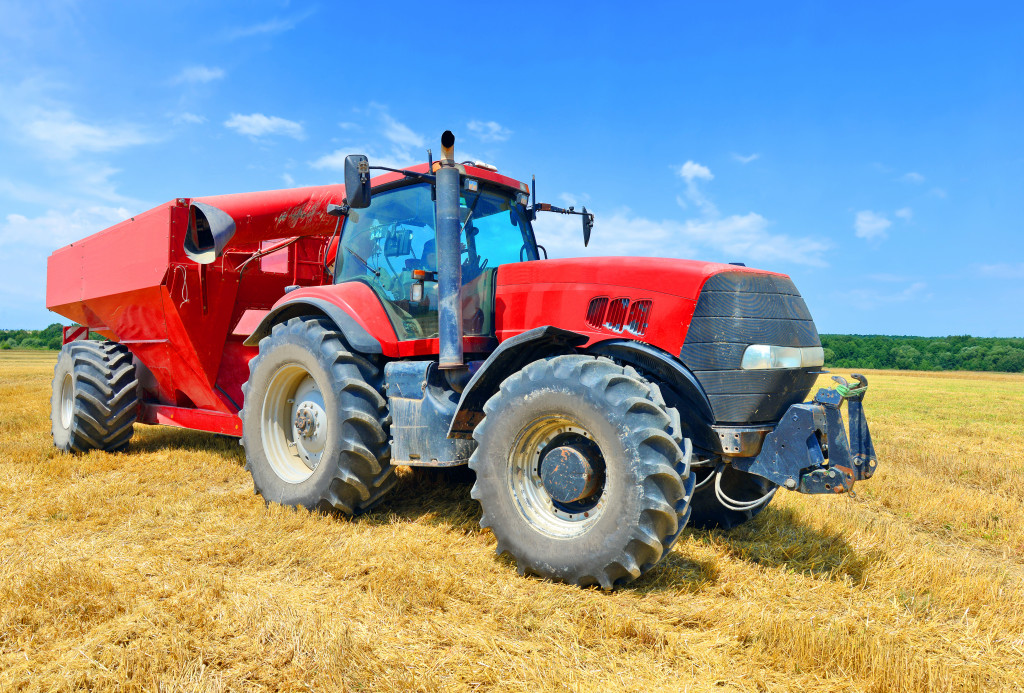- Create a comprehensive business plan to have an understanding of projected costs, income, taxes, and financial goals.
- Be realistic about the potential profits from your farming business and budget for unexpected expenses.
- Purchase only essential equipment to avoid overspending, and consider buying second-hand items to save money.
- Monitor your cash flow to ensure you always have enough money when needed.
Starting a farming business can be a great way to pursue a passion for agriculture and build a successful enterprise. However, like any other small business, making sound financial decisions is essential to ensure long-term success.
First-time farmers can make many financial mistakes, but by learning about the common pitfalls, you can take steps to avoid them. Here are a few financial mistakes to avoid when starting a farming business.
Failing to create a comprehensive business plan.
Before you start investing your own money or seeking outside investments, it’s crucial to have a well-thought-out business plan in place. Your business plan should include critical financial details such as the following four:
Projected costs
The projected costs of starting and running your farming business should be detailed in the plan. This includes all of the equipment, supplies, and labor needed to get up and running.
Projected income
Your business plan should also include estimates of how much money you expect to make from selling your produce or livestock. Be realistic with your expectations and account for both potential highs and lows.
Taxes and insurance costs
The costs of taxes and insurance should be taken into account when creating your budget. This includes income taxes, property taxes, and any other applicable fees.
Financial goals
Lastly, set financial goals for yourself and your business. These could include short-term goals, such as paying back loans, or long-term objectives, such as expanding the business. By having these goals in place, you can measure your progress and adjust accordingly.
Without a comprehensive plan, you may waste money and resources on strategies that won’t work, and you may find yourself struggling to overcome unexpected challenges.
Overestimating your profits.
It’s easy to get excited about the possibilities of your farming business, but it’s essential to be realistic about how much money you can make. It’s important to do your research and understand the market for your products. Overestimating your profits can lead to overspending or taking on too much debt, which can be devastating for your business.
Not budgeting for unexpected expenses.

Farming is full of variables that can impact your bottom line. Weather patterns, natural disasters, cyclical market trends, and other unexpected events can all affect your business. It’s essential to have a contingency plan and a reserve fund in place to cover unexpected expenses. Not accounting for unforeseen costs could leave you struggling to stay afloat when things don’t go according to plan.
Purchasing unnecessary items.
When starting a new business, it’s easy to get carried away and purchase items that you don’t actually need. Make sure you’re only investing in the essential equipment or tools that your business needs to grow and succeed. Avoid impulse buys that could be putting a strain on your budget.
It’s also important to remember that you don’t need to buy the latest, brand-new equipment. Consider buying refurbished or second-hand farm equipment to save money. You can easily find used farm equipment that are still in good condition if you know where to look. These pieces of equipment can often be just as effective as new ones at a fraction of the cost.
Ignoring cashflow.
As a farmer, you may have a substantial amount of money tied up in your crops or livestock, but that doesn’t mean you have immediate access to cash. Understanding cash flow is crucial to making sound financial decisions.
You need to know when your expenses will need to be paid and when you can expect revenue to come in. Without a clear view of your cash flow, you could find yourself short on funds when you need them most.
Taking on too much debt.

It can be tempting to take on a lot of debt early on in your farming business. However, taking on too much debt can be a recipe for disaster. If you’re unable to make your debt payments, the interest can quickly compound and put your business at risk. It’s important to be conservative when it comes to borrowing money and to have a solid plan for paying back what you owe.
Starting a farming business is an exciting opportunity, but it’s essential to make sure you’re making the right financial decisions. By avoiding common mistakes such as failing to create a comprehensive business plan, overestimating profits, and taking on too much debt, you can ensure your farming venture has the best possible chance of success.
Taking time to research different strategies for financing your farm operation will help set up a strong foundation that can withstand unexpected challenges in the future. With careful planning and mindful budgeting practices, there’s no limit to what your farming business can achieve!












